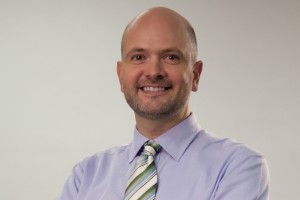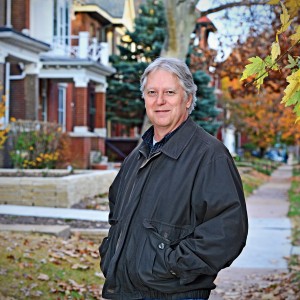
How many college students have considered working for the CIA so they can put aside money to enter the seminary? Kirk A. Foster, MSW ’02, PhD ’11, did. In fact, in the spring of 1994, as he was winding up his undergraduate degree in Russian and East European studies at the University of Illinois at Urbana-Champaign, the CIA was Plan A.
“I felt a call to service, but I wasn’t quite sure how to give it direction,” he says. “I was interviewing with the CIA, but I also was thinking of going straight to seminary so I could begin helping people in need sooner.”
His instincts weren’t surprising, given his upbringing in Dupo, Ill., a small village across the river from St. Louis. His father had a union job, was in the volunteer fire department and helped start the local ambulance service; his mother worked in a bank and performed a lot of community service work.
“The example my parents set for my brother and me was of being actively engaged in the community,” Foster says. “They were always working for the greater good.” His brother became a professional firefighter and paramedic. Foster was the first in his family to go to college.
Plan B, entering the seminary immediately, won out, so America never got its spook with a soul. Instead, Foster began religious studies at Eden Theological Seminary in Webster Groves, Missouri, that fall. Three years later, after being ordained, he took a staff position at Immanuel United Church of Christ in the north St. Louis County town of Ferguson.
“About the time I arrived, the church began leasing space during the week to an overcrowded local elementary school,” Foster says. “I had the opportunity to interact with students, teachers and parents every day. I soon realized we needed to be doing more than just Sunday morning services and special programs.”
What Foster saw was a town in the throes of economic and demographic change. Manufacturing plants were closing, the union jobs were drying up, and the formerly homogeneous population had a new look. It was the kind of change he would hear about years later when conducting interviews for Chasing the American Dream, and it was bringing turmoil and uncertainty to Ferguson’s once-dependable patterns of daily life and financial security. The desire to be of greater service took Foster out of the church and into social work — and eventually into a career in academia.
“I had thought initially of social justice only in a religious context,” he says. “Then I began thinking about it in a community context. For people with a strong faith orientation, each informs the other.”
Foster entered Washington University’s master of social work program and stayed for the doctoral program, in which Mark Rank, whom he had met years earlier while working at a welfare-reform organization, was one of his professors. In April 2010, his phone rang, and it was Rank wondering if he had time to discuss a project. By September, they had begun conducting qualitative interviews for what became Chasing the American Dream. Foster, sometimes teamed with Rank, conducted all 75.
“The book deals with the fact that for the longest time we thought everyone wanted a house in the suburbs … But when you ask people what they want, you hear a much different story. That informs how I think about policies and programs for impoverished groups — especially in urban areas.”
Kirk Foster
“The book is built around the stories of real people, told in the larger context of longitudinal data,” Foster says. “Mark and I did the qualitative analysis together. We also met regularly while I was still at Washington University to discuss the shape and direction of the book, although Mark is the mastermind behind its final form.”
With his doctorate completed, Foster moved on to the University of South Carolina, where he is assistant professor in the College of Social Work. This summer he will begin his own research project — a National Science Foundation-supported study of the different ways two historically African-American neighborhoods in Atlanta are reacting to socio-economic transition.
Foster now believes that the best way he can bring about social change is through the classroom, but he says the nature of the conversation hasn’t really changed.
“A lot of my work has revolved around understanding the resources that urban neighborhoods have at their disposal to create economic and social mobility,” he says. “The book deals with the fact that for the longest time we thought everyone wanted a house in the suburbs with a white picket fence, and that our policies and programs had to be oriented around making that a reality. But when you ask people what they want, you hear a much different story. That informs how I think about policies and programs for impoverished groups — especially in urban areas.”
